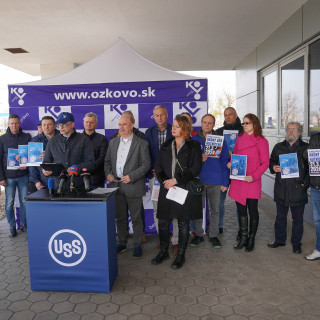
Andy's Wordshop
Common and ordinary. It's interesting how absolutely normal words change their meaning in specific combinations. Common usually means "bežné" (it's common practice, it's a common problem) or
"spoločné" (common property, common knowledge, something we have in common). Ordinary usually means "obyčajné" or "normálne" (an ordinary day, ordinary procedure). But animals which are
officially called "obyčajné" in Slovak are "common" in English; the Eurasian gray wolf is also called the common wolf, but it's not really common in the sense of "bežný". It's not polite to call
people "common" (Ugh, you're so common; the Pulp song: I want to live like common people). Interestingly enough in fact, the Slovak translation of this is "ordinárny", so ordinary is a tricky
word as well.
Tricky Words in this week's OVI:
Determined. As an adjective in modern English this should be translated first and foremost as "odhodlaný/á" in Slovak, for example "their determined work", "make a determined effort", "she was
determined to complete the task". In scientific research articles it appears as a passive participle (príčastie trpné) meaning "určené" (the chemical composition was determined), or as a simple
past tense meaning "určili sme" (we determined the chemical composition). In this sense I think "established", "identified" or "measured" might be better alternatives. Sometimes I despair though.
On the news recently I heard a woman with a high position in one of the Slovakian ministries say something like: "Som determinovaná, aby boli dosiahnuté ciele..." She meant "odhodlaná".












